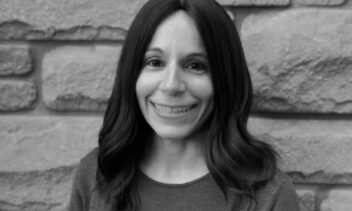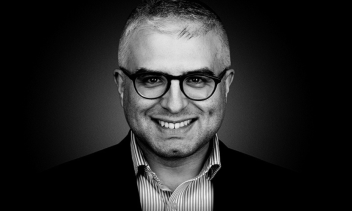The first time I read Rabbi Lord Jonathan Sacks’ Celebrating Life, I was struck by his chapter about marriage. I was navigating the world of dating and in this chapter, he describes the faith and commitment marriage demands. Marriage, he writes, “is a journey across an unknown land, with nothing to protect you from the elements except one another. It may not be much, but it is everything.” This deeply resonated with me as a framework for looking for a partner, someone with whom I could face the adventures of life and the world. In this simple sentence, Rabbi Sacks eloquently describes the idealism, reality, and commitment of marriage.
As the executive director of Shalom Task Force, I am often asked what we can do to prevent abusive relationships. What are the red flags, the warning signs? How do we ensure our partners will protect us, not become someone we need protection from?
Having met with hundreds of survivors of intimate partner violence (IPV), I can tell you that most do not say they missed the red flags. Rather, they could not name them, did not know what to do with them, and at times, may have ignored them.
There are many reasons someone might ignore red flags in a relationship, including social pressure, internal perception of what they “deserve,” or a doubtful voice claiming they are being overly sensitive and overreacting. Survivors may not have known what they were experiencing or even how to describe it.
My colleague, Yeshaya Kraus, often speaks about how entering a committed relationship is a commitment to “invest myself in the relationship, to the best of my abilities, in a way that helps you feel safe, secure, cherished, and loved. I will do this in a way that does not compromise my ability to feel the same way.” When we think about red flags in dating, we are really focusing on things that compromise our ability to feel safe in relationships.
The central dynamic of domestic violence is a pattern of power and control in the relationship, joined with the feeling of fear. As we look to become sensitive and name the red flags, we are looking for that dynamic of control, fear, jealousy, possessiveness, and isolation. It is important to explore these dynamics and look at behaviors and how you feel. Some of the questions to yourself are:
- How are decisions made?
- What happens if you and your partner disagree?
- Do you take up space in your relationship?
- Does your partner check your whereabouts and get upset if you are not available?
- Do they try to limit your social groups and activities?
- Do they ask very personal questions, breach personal boundaries, or behave in ways that make you feel uncomfortable?
- Does anything in the relationship feel “off” to you, even if you cannot put it into words?
As important as it is to know the red flags, it is equally important to reflect on how you want to feel in a relationship. I challenge you to look inward and think about these statements as positive markers.
- I am treated with respect.
- I feel heard and cared for.
- I have a separate identity with unique needs and interests.
- I can take time and space for myself.
- I can express an opinion even if it means disagreeing with my partner.
- I can change my mind.
- I can set limits that feel right to me.
- I can share my feelings.
- I feel safe.
What to do if things do not feel right? Remain curious, take your time, pause, and find help.
Remain curious by exploring what your gut is trying to tell you and listen to that feeling before dismissing it.
Take your time in doing so, even if that means pausing to explore that feeling through both self-reflection and by asking important questions of your partner.
Pause, think about how those conversations with your partner feel—do you feel safe in the conversation? Do you feel that you could express yourself?
And find help. Identify people in your life from whom you are comfortable seeking help, and know that there are resources in your community available to help you, such as Shalom Task Force. Nobody must figure this out on their own.
Most important is to know that you are not alone. As the community learns and understands more about domestic abuse and what healthy relationships should look like, support systems are becoming more robust. In an abusive relationship, reaching out can mean being safe. In an unhealthy relationship, it can mean learning new skills to improve communication. In a healthy relationship, it can mean making the good even better.
If you or your loved one has questions or concerns about relationships or are currently in an unhealthy or abusive relationship – we are here for you. Please call, text, or WhatsApp the confidential Shalom Task Force Hotline at 888-883-2323 or chat with a live advocate at shalomtaskforce.org. To help spread awareness and bringing DV and relationship education to your community, email us at info@shalomtakforce.org, or call 212-742-1478 extension 104.
For additional information: www.shalomtaskforce.org
—
Dr. Shoshannah Frydman, PhD, LCSW is the executive director of Shalom Task Force. Dr. Frydman is a trauma-informed therapist and advocate who has worked in the field of domestic abuse and family violence in the Jewish community for close to 20 years. Dr. Frydman co-chairs the UJA Taskforce on Family Violence, and was recently appointed to the New York City Mayor’s Office to End Domestic and Gender-Based Violence COVID-19 Response Group. Dr. Frydman previously served as the managing director of Family Violence and Social Services at the Met Council. Dr. Frydman received her MSW from the University of Maryland School of Social Work and her PhD at the Graduate Center of the City University of New York/Hunter College Silberman School of Social Work.








